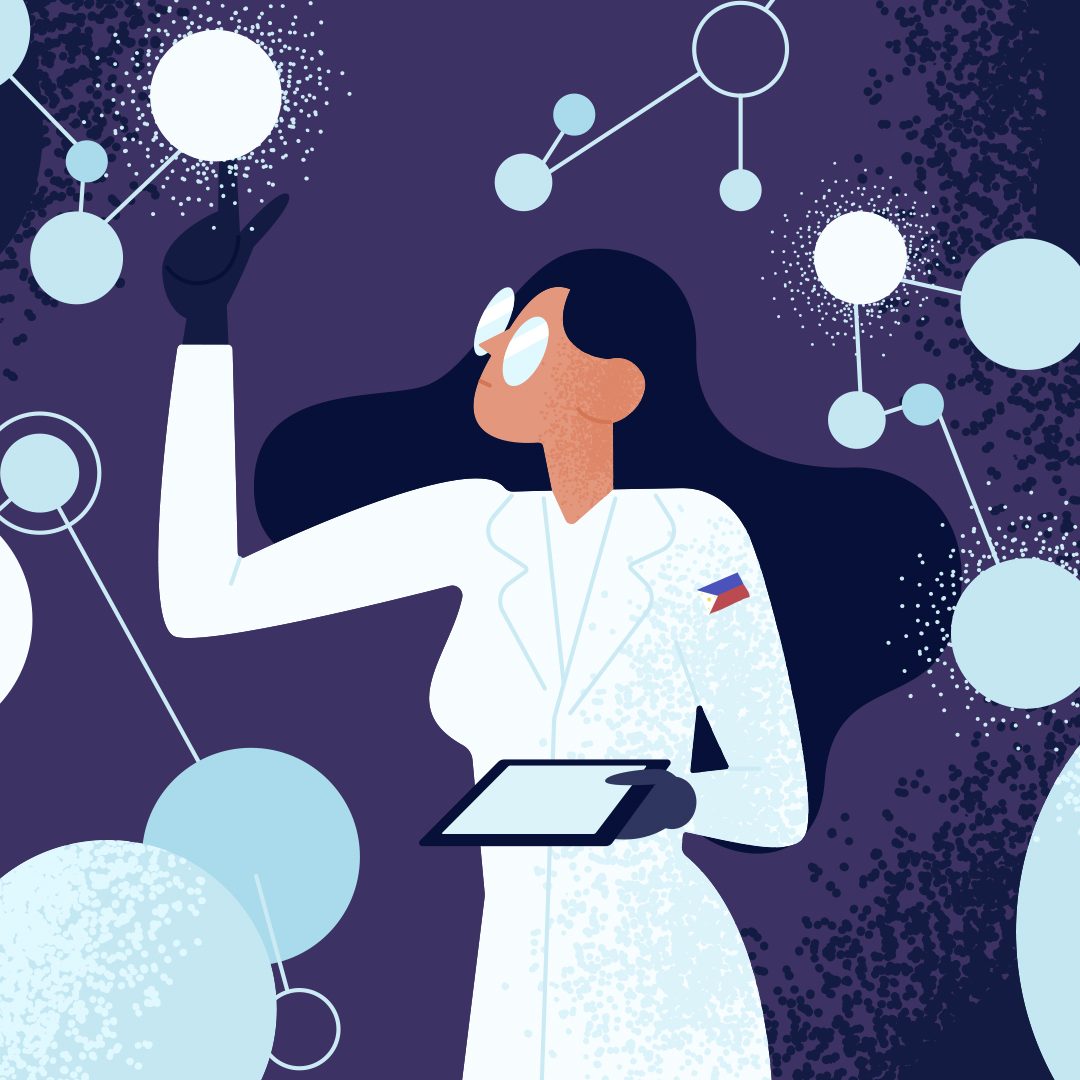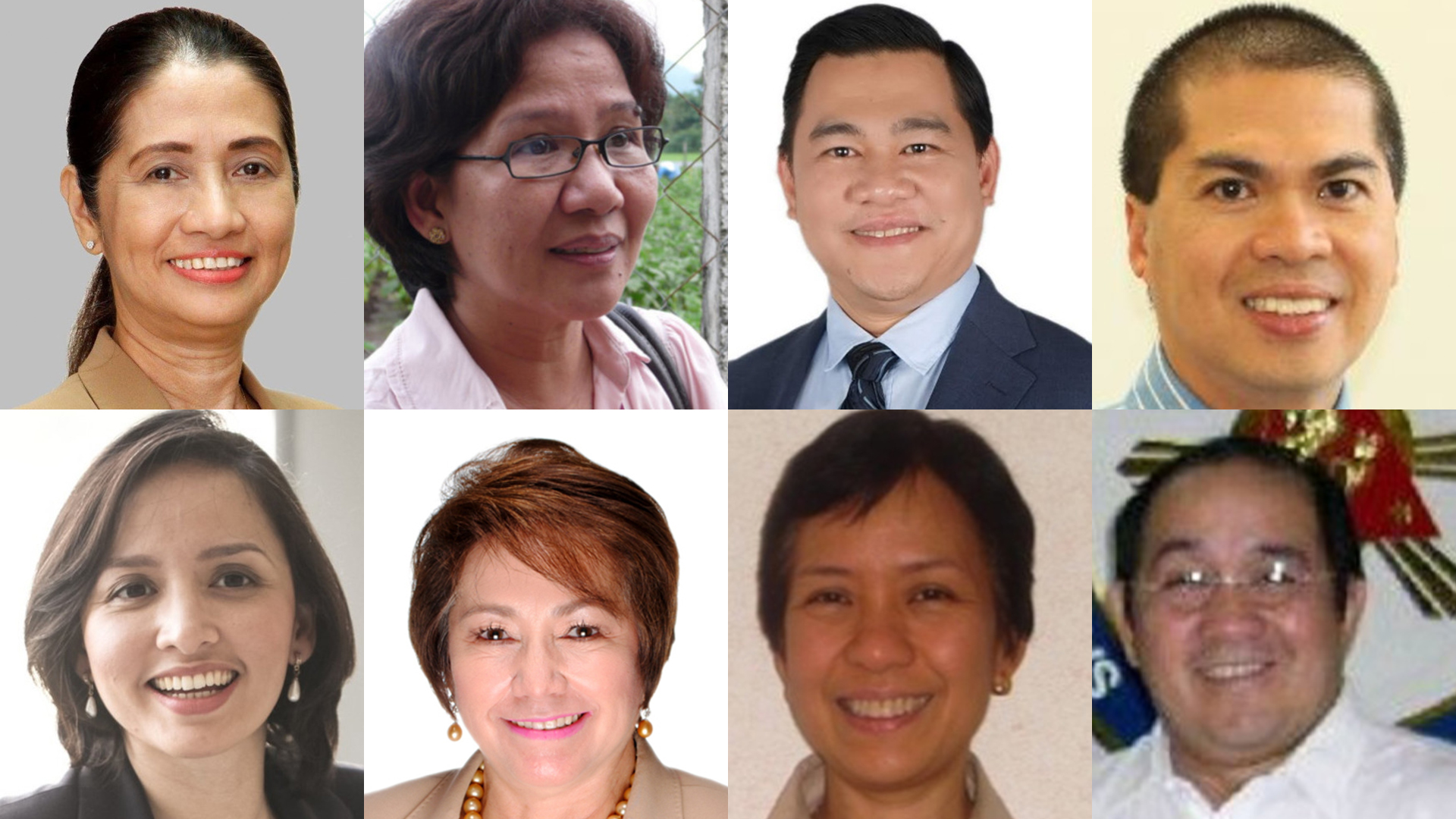SUMMARY
This is AI generated summarization, which may have errors. For context, always refer to the full article.

The pandemic brought a particularly challenging year for everyone, but researchers remain relentless in their pursuit of science.
This was evident in the latest edition of the Asian Scientist 100, an annual list of 100 brilliant scientists, researchers, and innovators across the region by Asian Scientist Magazine, a Singapore-based publication.
For this year, eight Filipino scientists were recognized as part of the much-coveted list. To qualify for the Asian Scientist 100, “the honorees must have won a national or international prize in 2020,” according to Asian Scientist Magazine.
“Alternatively, the honoree must have a significant accomplishment in scientific discovery or leadership that benefits academia or industry.”
“It is now clearer than ever that science – and scientists – are what will help us overcome challenges like COVID-19 and longer-term issues like climate change,” said Rebecca Tan, editor-in-chief of Asian Scientist Magazine.
“We are committed to shining a spotlight on the scientists who often work behind the scenes to bring much needed innovations like new vaccines to the world.”
Here are the eight Filipino scientists on the 2021 Asian Scientist 100 list, in alphabetical order:
- Kathleen Aviso, De La Salle University
- Annabelle Briones, Department of Science and Technology
- Salvacion Gatchalian, Research Institute for Tropical Medicine (RITM)
- Desiree Hautea, University of the Philippines Los Baños (UPLB)
- Sandra Teresa Navarra, University of Santo Tomas Hospital
- Jonel Saludes, University of San Agustin
- Francis Aldrine Uy, Mapua University
- Edgardo Vasquez, Vazbuilt
Gatchalian, who was an assistant director at the RITM and president of the Philippine Pediatric Society, succumbed to COVID-19 in March 2020.

Each of these scientists were recently recognized by the Philippine Association for the Advancement of Science and Technology for their significant contributions in their respective fields. However, the Asian Scientist 100 recognition came as a surprise to almost everyone.
“I felt blessed, honored, and truly grateful. It was a very pleasant surprise,” said Hautea, who was recognized “for her research into the adoption of the genetically modified Bt eggplant in the Philippines.”
“I am happy and proud to be recognized as a Filipino scientist. January this year, my entire family got COVID-19. It was a very hard experience. This must be the reason why I was given another chance,” said Uy.
Uy’s project, the Universal Structural Health Evaluation and Recording System or USHER, is a 24/7 structural health monitoring system that helps ensure safety of people and properties when there is a strong earthquake. It is the only Filipino-made structural health monitoring system in the market.
“It came as a surprise. I did not expect it because I know that the recognition is given to scientists who have reached a certain level of accomplishments…. To be recognized for [Asian Scientist 100] this year is elating, it’s surprising, and at the same time, it’s actually humbling,” Saludes told Rappler in an interview.
Saludes was recognized “for his research into the chemical biology of natural products from organisms.”
Driven by passion
Saludes added that like any other scientist, he believes that recognitions such as this are just icing on the cake, and scientists do what they do because of passion and a determination to serve the people.
This passion is also evident in other honorees’ work. For example, Aviso is working on developing models that identify which technologies should be selected to reduce greenhouse gas emissions or which strategies should be implemented so that we can manage our resources more efficiently.
“By creating models, we can have more informed decisions with how we can solve problems. These results may not be perfect but they are better than ad hoc decisions,” she said.
Aviso was awarded “for her important contributions to environmental systems engineering as well as developing novel optimization models to guide national and global environmental decision-making.”
Meanwhile, Hautea has over 40 years of experience working in areas of plant genetics, breeding, and plant molecular biology and biotechnology. She and her team are working to develop new and improved Philippine crop varieties using conventional and modern genetic modification and digital technologies.
“In the Institute for Plant Breeding, we believe that everything starts with a good seed. Through our science-based crop improvement research, we hope to contribute to addressing the challenges of food and nutrition security, sustainability and resilience to climate change,” Hautea shared.
Her work in genetics also enabled her to contribute in the establishment of the UPLB COVID-19 RT-PCR testing laboratory.
“This just proved that DNA science is universal and can be used anytime when duty calls,” she said.
Love for science started young
As kids, these scientists were inquisitive and curious explorers of the world around them, and these inquisitiveness and curiosity prepared them for their career in science.
Saludes shared that he would play with his father’s magnifying lens for hours, curiously observing how the sunlight is able to burn different things – from paper to leaves to even ants.
Similarly, Hautea grew up “experimenting.”
“Toys were not the usual store-bought things when I was a kid. My child play was tinda-tindahanan (pretend store), extracting pretend oil from gumamela leaves, making soap, deconstructing and recreating new stuff,” she said.
Meanwhile, Aviso shared that her parents had a huge influence on her interest in mathematics and science.
She said, “It helped that my parents were also inclined in the field. My mom is an economist by training, while my dad is an engineer.”
Shaping a future generation of scientists
Asked on what advice they would give aspiring Filipino scientists, Hautea emphasized that the purpose of science is for the greater good.
“During this pandemic, science has proven that it is a great problem solver. Help develop and nurture a culture of science among our people,” Hautea said.
Uy has these words to live by: “We may not live a thousand years, but always aim to leave a thousand years work well-accomplished.”
Meanwhile, Aviso highlighted the importance of identifying your passion and strength.
“My main advice is to pursue your interest and to know what you are good at. Being interested in something encourages you to learn more about it, which encourages you to practice and build upon your skills. This makes you better at it, and so it reinforces itself and you end up always trying to improve and hone your craft. Eventually, you’ll be the expert in that field.” she said.
For Saludes, it is important not to be discouraged by failures.
“These young and aspiring scientists must understand that many of the activities, whether that’s experiments or programs… Many activities that we pursue will fail. Why? Because as scientists, we are not repeating established methodologies – you are treading an uncharted path. You need to persevere even after failures because otherwise, you will not be a successful scientist,” he said. – Rappler.com
*File photos courtesy of ResearchGate; DOST; Philippine Pediatric Society; Loop; School of Civil, Environmental and Geological Engineering, Mapua University; and San Beda College Grade School ’65, High School ’69.
Add a comment
How does this make you feel?

There are no comments yet. Add your comment to start the conversation.